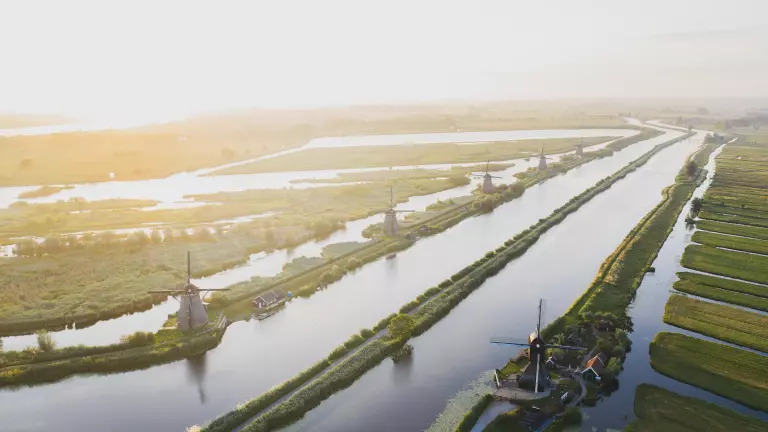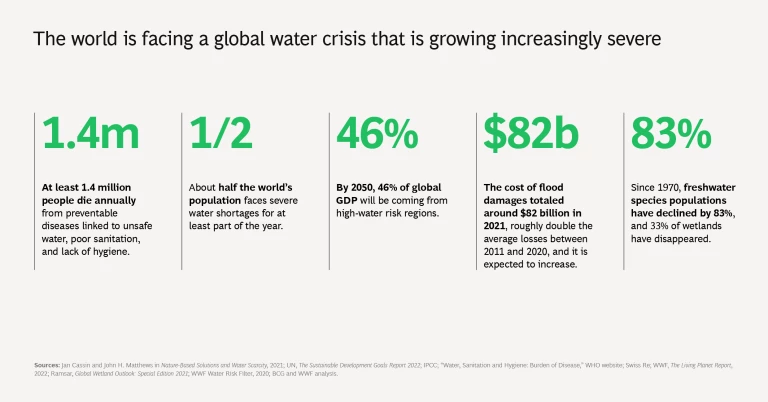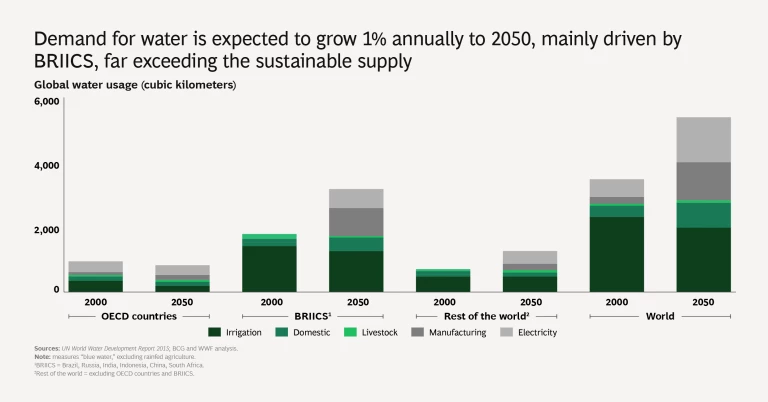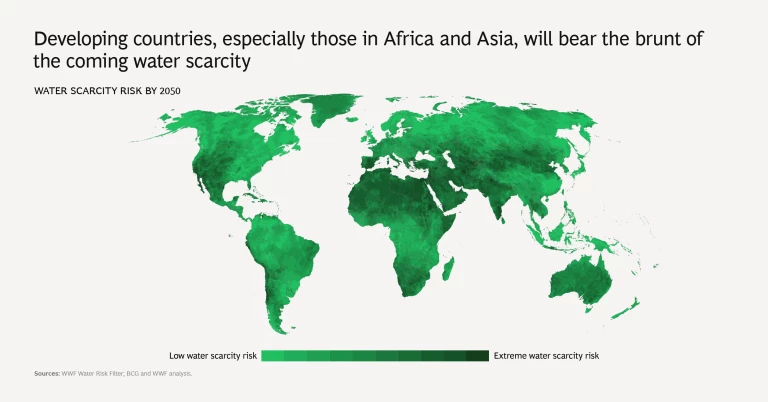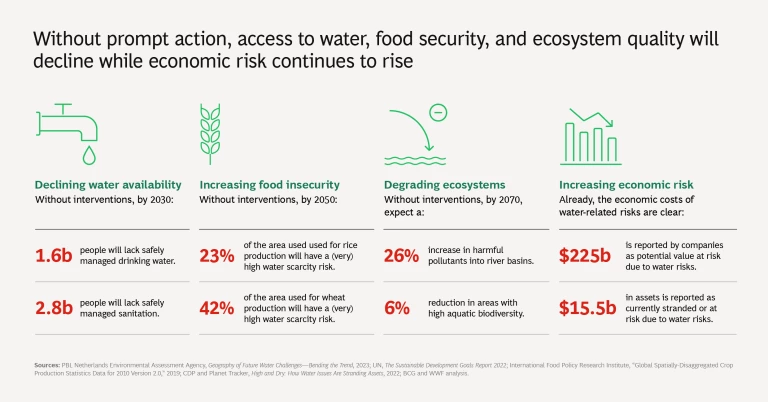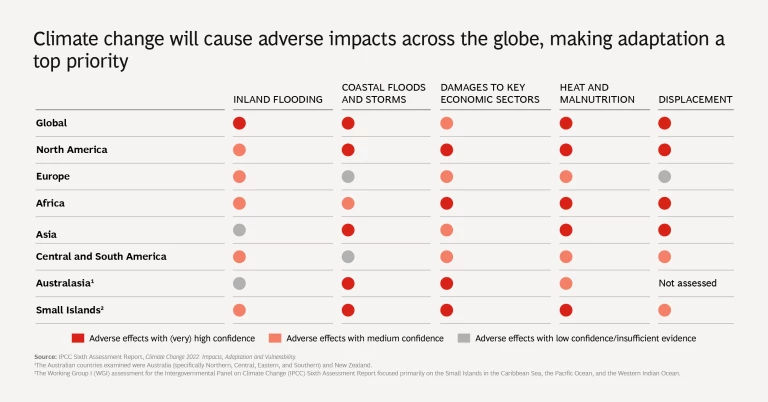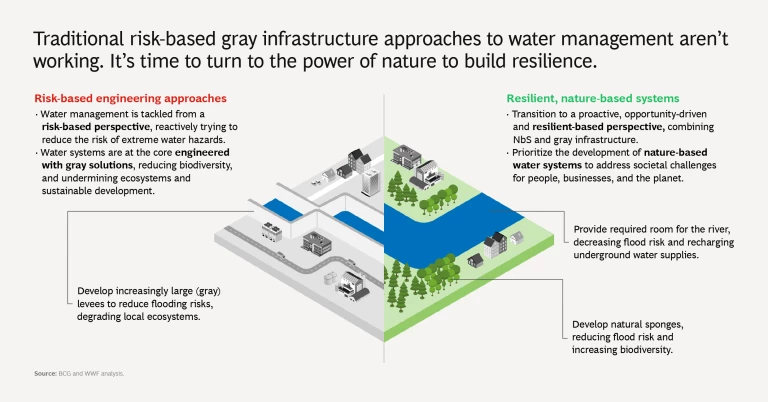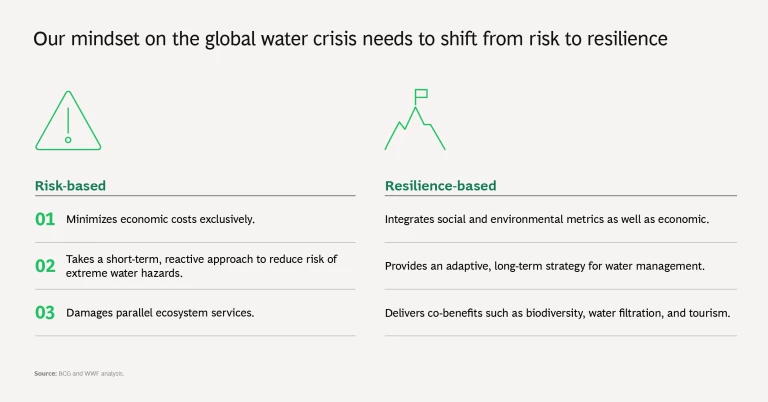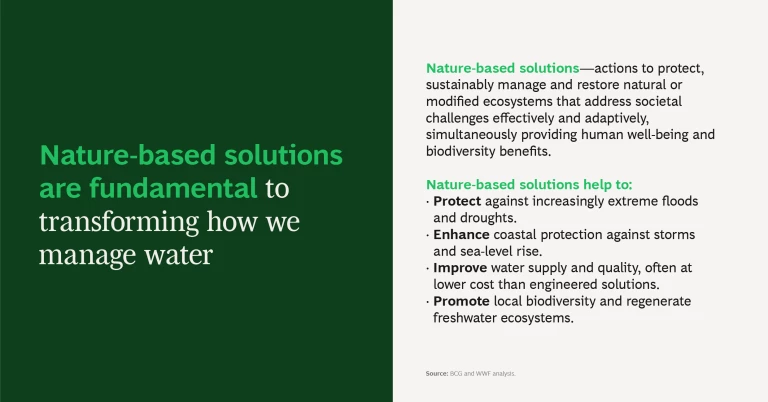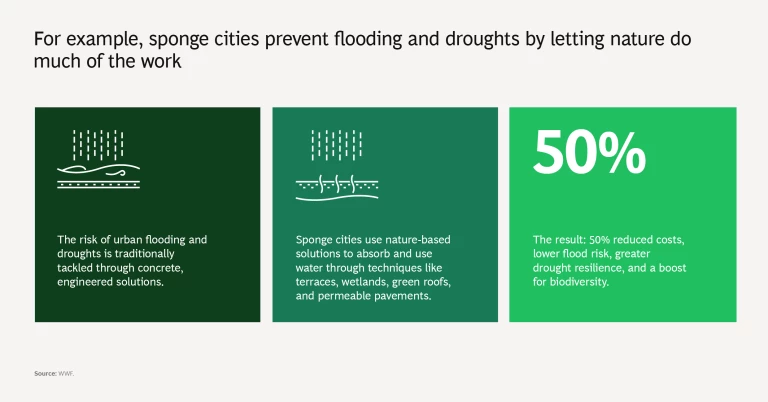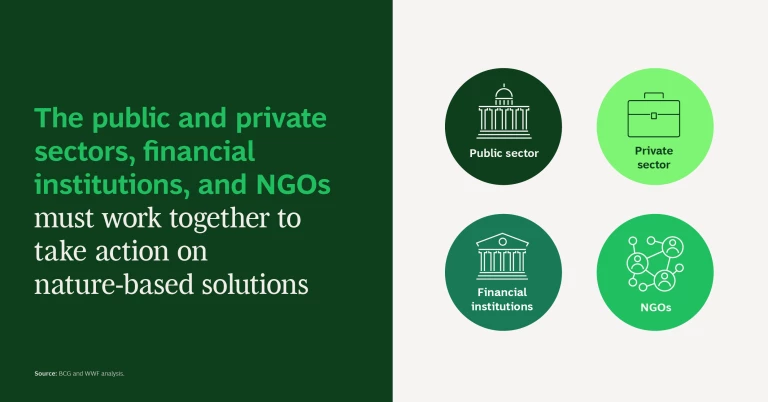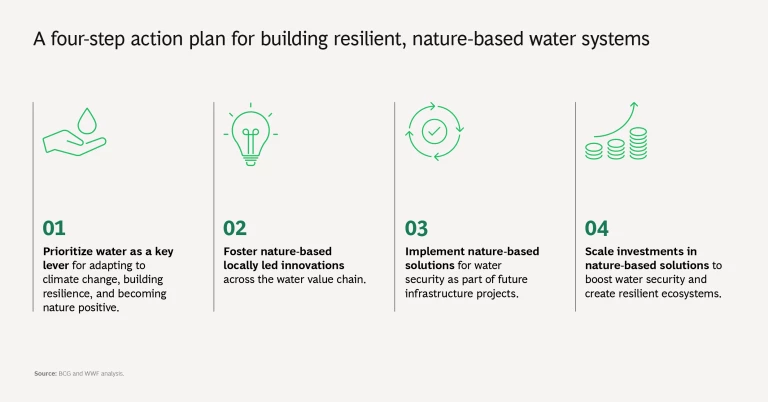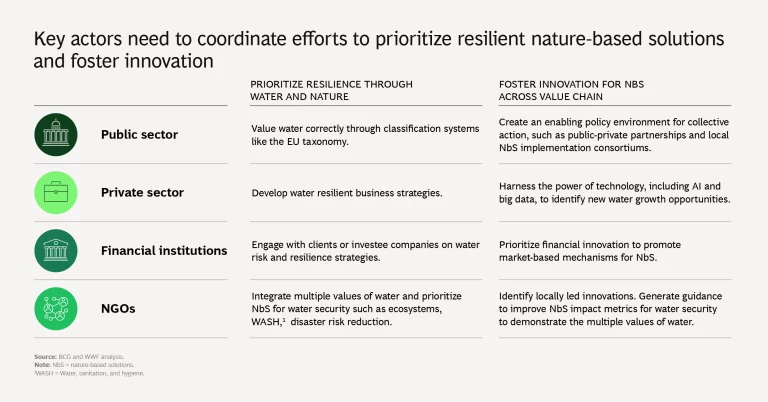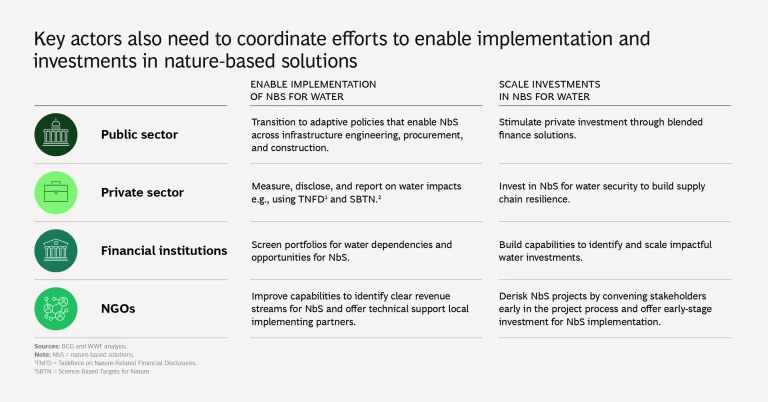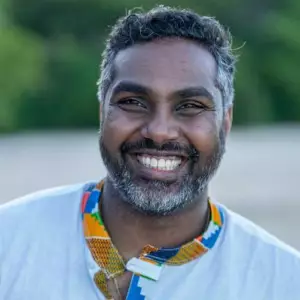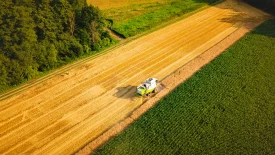Whether there’s too much, too little, or it’s too polluted, the global water supply is in crisis. For more than a decade, water-related risks have led the World Economic Forum’s global risk assessment in terms of both likelihood and severity of impact on both people and businesses. As demand for fresh water continues to rise, climate change is making matters worse.
Traditionally, governments and companies have taken a reactive, risk-based approach to water management, one that focuses on mitigating the economic consequences of floods and droughts but pays little consideration to environmental impacts. Now is the time to change this outdated approach to water management by investing more in the power of nature-based solutions (NbS), which protect and enhance ecosystem services, to help manage water with resilience and for the long term. Technological innovation, supportive water governance mechanisms and economic policies, more efficient water operations, and traditional infrastructure and nature-based solutions all have their roles to play in improving how societies manage water. This article focuses on learning to combine traditional solutions for water management with nature-based solutions to ensure safe, secure water supplies for all.
The public and private sectors, financial institutions, and NGOs must collaborate to embed resilience in the water system.
For governments, this includes ensuring that water is priced properly and that policies and regulations promote the building and financing of NbS water management infrastructure. Private companies need to make their water practices more resilient across their operations and supply chains while harnessing the power of innovation. Financial institutions need to develop capabilities to assess water-related opportunities and risks—and take these into account in their lending practices and investment portfolios. NGOs can develop and promote global guidance on the need for changes in water management and work with communities and local partners to build new NbS-based infrastructure.
The Netherlands’ Room for the River program demonstrates the power of collective action. Over the course of centuries, the Dutch have heavily modified their rivers and built complex systems of ditches and levees to manage their water. But floods in 1995 led to the evacuation of 250,000 people and the loss of 1 million head of cattle, inspiring planners to seek a better way to manage water. The goal: to restore the Rhine and Meuse system’s flood plain and allow the restored natural river landscape to safely manage water flow in times of excess capacity.
The program’s adaptive framework called for preliminary basic measures to be developed by the Dutch government, after which regional authorities and private parties contributed additional ideas and alternatives. With a total budget of €2.3 billion, the effort involved 34 separate projects—combining the construction of flood bypasses, reconnection and excavation of flood plains, relocation of ditches and levees, and lowering of seawalls. The overall objective: increase the discharge capacity by 10% to assure protection against flooding.
An especially innovative feature of the program was its dual objectives to ensure safety and protection from floods while balancing hydraulic effectiveness, ecological robustness, and cultural significance and aesthetics. Since the start of the program, for example, natural conditions have bounced back throughout the floodplain, and the improved aesthetics of the newly restored land have made it an attractive location for recreation and ecotourism.
The example of the Netherlands shows what can happen through an integrated, collective, nature-based approach to local water challenges. Together, stakeholders can come together to build a future in which everyone has access to ample, clean, safe water. Now is the time to scale resilient solutions to the global water crisis.
This content was produced in collaboration with WWF.
